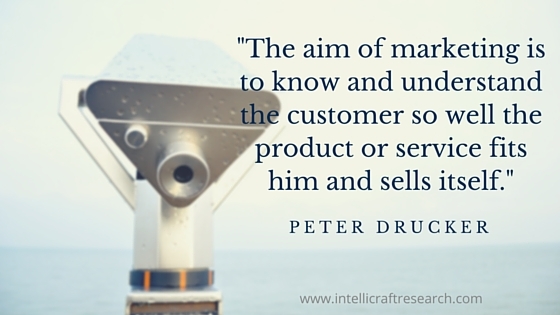How to Get Your Library Into a Marketing Mindset

 How do you get your library into a marketing mindset?
How do you get your library into a marketing mindset?
What is marketing, really?
Many people say that they hate marketing
Maybe because they think marketing is all about paid advertising, like those incessant drug ads on TV (and this from someone whose first career was as an ad exec for a pharma client!).
Or all pushy car sales people with quotas to meet come to represent the sales part of marketing.
Or they think of ‘telemarketing’.
Ick.
Maybe they think marketing means you have to be ‘pushy’ and it’s manipulating people to buy something. They think marketing is only for people selling physical products – the latest sneakers, new cars, gluten-free cupcakes or books about cupcakes. They maybe question if nonprofits, associations and organizations like libraries really need to ‘market’ because they don’t ‘sell’ things.
BUT … “they” are mostly wrong
And YOU know that. You just need to build up your marketing mindset and keep it positive and clear.
Marketing is a process, not an event
Marketing is communication and customer service and delivering value, not propaganda or being pushy.
Good marketing is never deceptive, never misleading, never negatively manipulative.
Marketing is so much more than advertising or PR. It involves research, promotion, pricing strategies, events, education and distribution as well as advertising and sales.
Marketing is storytelling. It is communicating how your organization listens and then delivers awesome benefits to its users, patrons or customers.
Marketing is communicating your uniqueness, your value proposition, your reputation, and your very reason for existing and doing what you do.
All of that applies to nonprofits like libraries, information centers and solo info pros (even those selling their services). You should, you can, and you DO market your organization – whether you ‘sell’ or not.
But perhaps the most overlooked aspect of marketing is having the right attitude or “marketing mindset.”
When you have a marketing mindset, no matter what role you perform in an organization, you ask how you can build awareness among customers, clients or patrons about your products and services. You CAN build a positive library marketing mindset.
What the marketing mindset is NOT
If your current marketing mindset revolves around fear, limitations or what NOT to do … then it’s time for a new mindset.
There’s too much good information and help available to still fear marketing or get stuck believing there’s only 1 right answer (or that the answer is ‘not to do marketing’). You also need to bring your own perspectives, knowledge of your organization and your audience to bear – because your mindset needs to represent you authentically.
You, or your organization, offers products and services because you feel you have expertise, knowledge, gifts, or resources that help or enhance the lives of a particular type of person or organization. NOT telling people how you can help them is a disservice to your community. You OWE it to them to show how you can connect, help each other, and together be more successful. You do that through marketing. So thinking of your community, your clients, your users first will always help you get in a better marketing mindset.
The Positive Marketing Mindset in Action
As you develop a robust, positive library marketing mindset, ideas of how to meet marketing goals on a daily basis will come more easily. To get in the practice here are a few core concepts you need to keep in mind:
Know your service (and your products and resources) inside out
This may sound obvious but think about how many times we, as customers, have walked away from a purchase because the person helping us couldn’t answer a few basic questions about their product or service. You’re information experts, you pride yourselves on knowing – knowing how to search, knowing where the best resources are, knowing how to help people find what they need.
We live by our service ethos as well. We know we can’t miss an opportunity to deliver. It should be easier for librarians and info pros (than many other service professionals) to take what you know about your library and all its myriad resources and find a match to something a patron or client needs. Some days our patrons make it hard to help them, I know! But they are there, talking to you, asking questions because at the core they recognize you can help and are the gateway to what they need. Knowing about your programs, events, databases, tools and partnerships isn’t just good library service and training, it’s good marketing.
Corollary – Know your users, patrons or customers inside and out “First understand to be understood”.
Many of you reading this are research pros. Not as often as we should do we turn the research around and dive deep into those we serve and work with to more completely understand their wants and needs.
What are their short-term and long-term goals (think like a reference interview here – the question beyond the question, the need behind the initial question)? What do your users do versus what they say? How do you want them to feel after an interaction, a program, an initial meeting, the end of a project? Yes, I said ‘feel’ – that’s a very important connection and relationship builder we can’t skip over. Especially when we need the stories, love and support from our patrons, users and clients to keep our orgs going.
What’s the critical, one next step you want them to take, right now? How will you know if they are satisfied – if your help and services allowed them to meet their goals? Do we know how to capture that?! What services provide your community or clients with the greatest benefit (particularly one they recognize!)? Careful, it may be different from what you think they should know, use or benefit from! Can you get more specific about who you are serving?
These questions are all part of a good marketing plan, but knowing you need to ask them, and find the answers, is a key to a positive marketing mindset. Need help with the concrete, nitty-gritty of a strategic marketing plan? Let’s do a quick strategy session to talk about how I can help.
“Think like a customer” – Paul Gillin, author of The New Influencers
Every interaction with a customer or patron, a vendor or partner, or a prospective client is a networking opportunity
The term “networking” makes some people uncomfortable. So redefine it! It’s not about “schmoozing” or closing sales. It’s about listening to others to understand where they are coming from and how you can help each other. Just have a conversation, a two-way dialogue. It doesn’t have to happen at a formal meeting, conference or networking event.
Know your reason why
Not just the ‘why’ or mission statement for your library, but the WHY for your marketing. For every promotion, outreach opportunity, instruction or training, presentation or speech. For every marketing action, every communication piece, every flyer, blog post, video, social media update, presentation, or sign – know the reason why that particular piece exists. What is its singular job? It should be to inspire some particular next action. And the action you desire needs to meet up with what’s at stake for your user, what their driving need is.
Is the flyer telling a patron to go to an event on Wednesday at 4pm, to go to the desk to sign up for story-time, go to this part of the library to get books on X, or use this particular database for looking for local job applications? One core piece of information, one action on each piece of marketing (be that a flyer, digital sign/screen saver, bookmark, email, or poster). Each piece of marketing has a reason to exist, a desired outcome and an intended audience. If you have more information, check against your big ‘why’ and maybe you need more pieces of collateral or marketing. Not more text on the flyer.
Goal and reason come first in the mindset, then creation and promotion. Strategy before tactics.
Keep the ideas flowing
A positive marketing mindset is open to innovation, ideas, and adaptability. Keep a notebook with you, or use the voice recorder or memo feature on your smart phone. Have an Evernote with a Top 10 list for promotion ideas, blog posts, videos, programs or other ideas. Go ‘old school’ or all high-tech, or like me, some combo of both. The how doesn’t matter – keeping track of ideas does.
Don’t worry now about which ideas will be great or if they may bomb. Stay open. An idea that doesn’t fit in June might work in October. Maybe that idea will pair well with one you have later. However … if an idea seems really hot, don’t stash it away too long. See if it meets the other mindset factors, your criteria and works for your plan. Test it out. Let it fly. Learn from it. Learning is a big part of the marketing mindset.
Simple is always best
With all the options for promoting your organization, try not to get overwhelmed. The key to successful marketing, no matter what methods you use or products you promote, is to keep it focused on your audience, your target. Always start with what they need and want, and work your way back to your offer from there. If you know them well, provide what they want and promote it where they can see your offer, your success is assured.
The “bottom line” isn’t always about money coming in
Looking for ways to save is just as important as finding new revenue streams or fundraising sources. It’s also often wiser to spend on certain tools or tasks rather than spending your precious time, if your time is better served on other higher return projects. If you were in accounting, for example, instead of just recording where the money is going, you would watch for places to save.
When looking at your library’s numbers is there a way to do something more efficiently? Can you switch vendors for a reference material or database; is there a cheaper email service provider; should you move your accounting or event scheduling to the cloud? Would a long-term plan save money over a short-term ‘special deal’? Is social media costing you more in time than it saves in dollars? Is social media costing you more in time than it saves in dollars? Is it worth it to pay for a scheduling tool in terms of time saved, especially for social media marketing? [Hint: YES]
In reality, everything is marketing.
Every point of contact with a customer or patron is marketing. Every act of communication is an act of marketing. Your branding, logo, website, signage, social media profile, business card, flyer, poster, event registration … it’s all marketing.
All of it contributes to the success and viability of your organization in some way. Whether you’re the boss, on the front lines, or behind a desk in the back, thinking like a marketer is way of helping your organization to grow, and making you a valuable member of the team.
“Marketing isn’t magic. There is a science to it” Dan Zarrella, social media scientist, author
Upcoming posts on this blog (and a number of previous ones as well, plus ones at my other blog TheInfoHound.com) will help you build a new, more positive marketing mindset, as well as rich marketing toolkit. That’s my WHY.
And for those times when you can’t handle it alone, or need additional training – that’s why I’m here to help. Click here to book your FREE 30 minute marketing consult and we can discuss which parts of your mindset need tweaking or what the best next step is for you.







